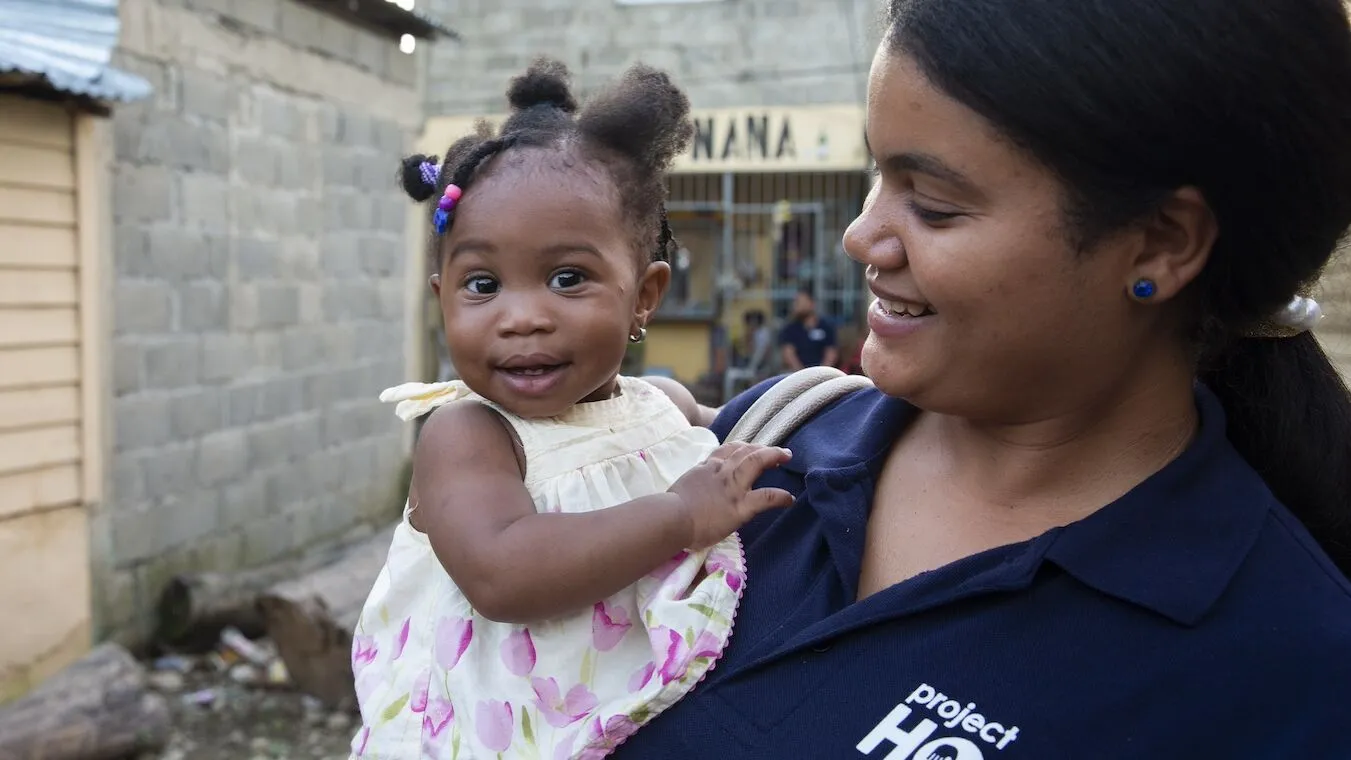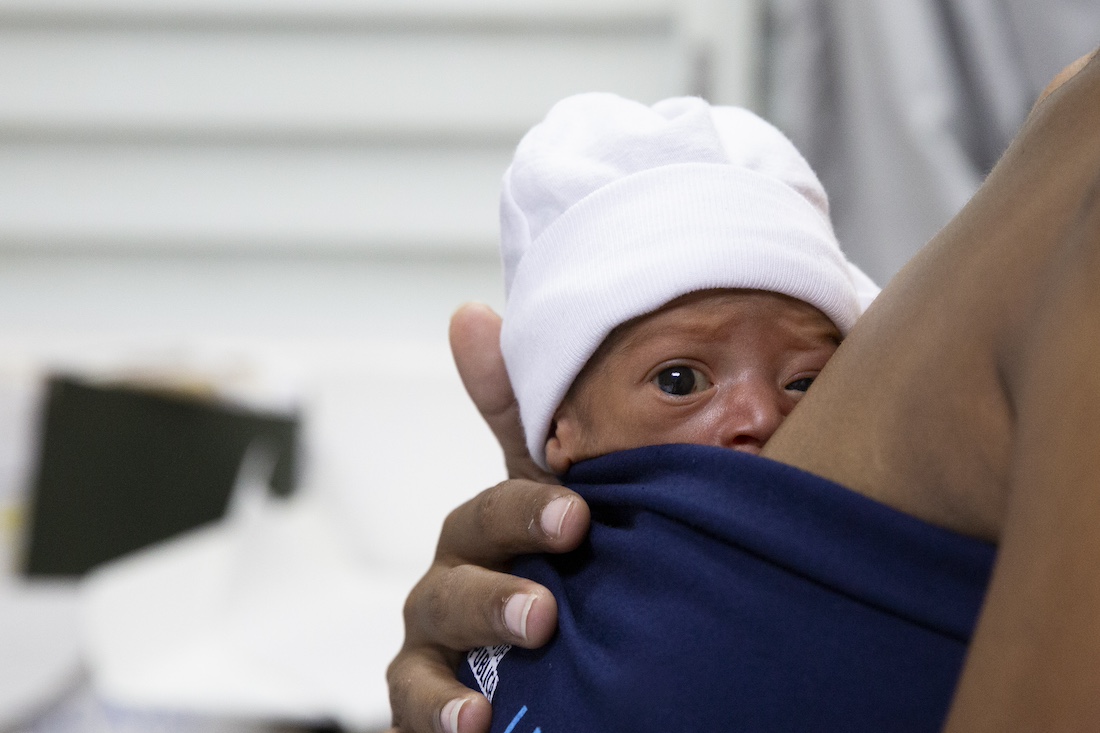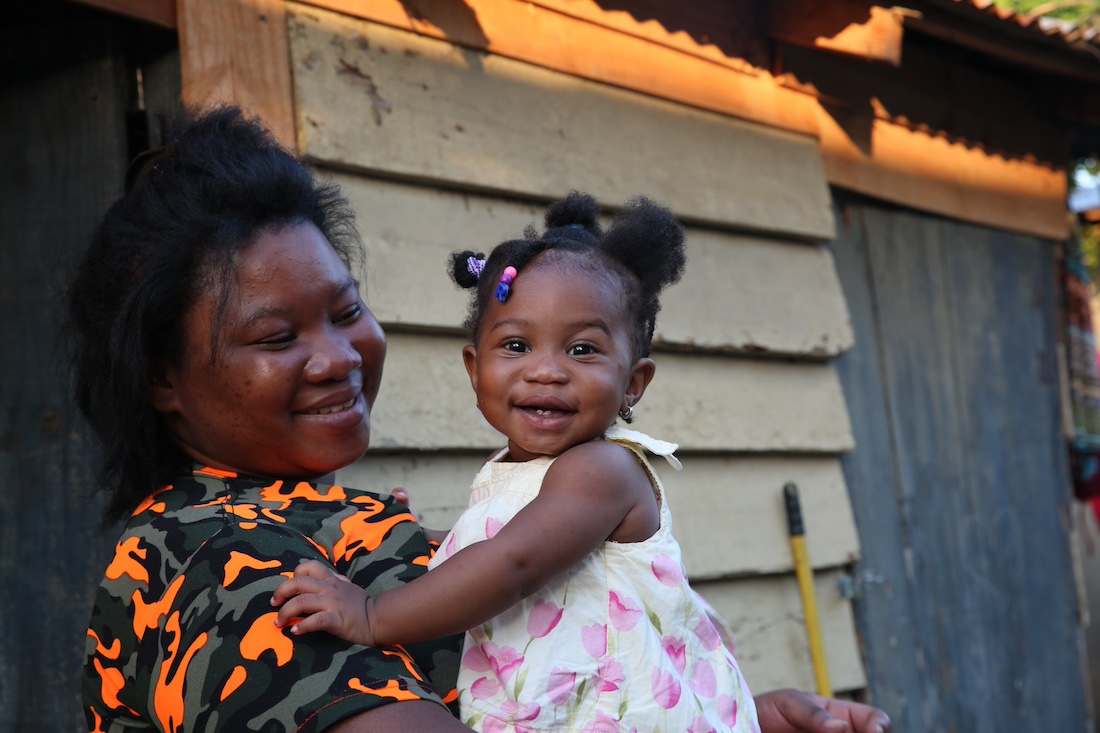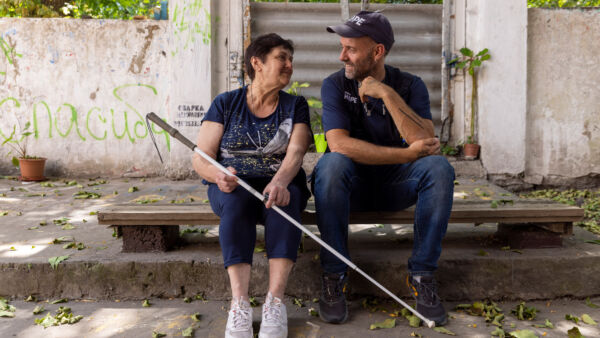Mothers in the Dominican Republic Are Feeling Seen
A new study led by Project HOPE identified many of the key challenges that prevent women from accessing maternal health services in the Dominican Republic—as well as the solutions that will expand access to care.

Despite being a high-middle income country, the Dominican Republic has alarming maternal and neonatal mortality rates. The maternal mortality rate has worsened since 2000, with 107 women dying per 100,000 live births, while 33 out of every 1,000 children die before their fifth birthday. Challenges like poverty, poor housing conditions, and inconsistent water and sanitation services have put women and children in vulnerable positions. Fortunately, many deaths among pregnant women and newborn children are preventable by improving the access to basic health services such as pediatrics, pre- and postnatal care, and psychological support.
Project HOPE recently led a study that looks at the needs of populations put in vulnerable positions and focused on identifying and improving gaps in maternal health access in the Dominican Republic. The study was motivated by increasing numbers of maternal deaths among migrant women, in particular, which could have been prevented with adequate prenatal care.
The study featured interviews with health workers from four maternity hospitals, partner organizations that work closely with migrants, and migrant women receiving maternal care. It found that many migrant women in need of maternal care in the Dominican Republic don’t get access to these key services due to low literacy, language barriers, lack of financial resources, and fears of detention or deportation.
“I was struck that some women give birth at home for fear of deportation,” said Project HOPE program manager Adriana Wanderlinder. “This increases the risk of maternal and neonatal death due to undetected complications. This same fear means that women don’t attend prenatal consultations to monitor their pregnancy, which has a direct impact on maternal and neonatal morbidity and mortality.”

The study confirmed instances where migrant women opted for home births because of these fears or used the 911 emergency service when going into labor as a means for safe transport to the hospital.
The study also found challenges in relation to nutrition and access to existing HIV prevention and treatment services. Many mothers are malnourished and give birth to infants that have low birth weight.
Language barriers between health care providers and patients were another challenge.
“From my perspective, minimizing the language gap is key,” Wanderlinder said. “Peer navigators and medical interpreters could be helpful to minimize the challenges and reinforce the humanization of services, such as teaching cultural sensitivities to staff and always remembering that there is a human being on the other side.”
“There needs to be more access to health care, not less,” said Emily Freehill, Program Director for Project HOPE in the Dominican Republic. “Some nurses that we spoke to were eager to provide better care to migrant patients by learning the language and culture. There was a nurse that wanted to learn the traditional health practices after noticing that a mother she was working with had been doing very effective postpartum care. Aside from this, we found that many hospitals have a general lack of resources. While many hospitals desire to help all patients, they don’t have specialists or basic supplies. They want to improve care for everyone, but there is underfunding and understaffing, which ends up impacting the communities that need care.”
A commitment to providing care

Project HOPE’s work in the Dominican Republic is improving maternal, newborn, and child health across the island. Over the last 20 years, Project HOPE has established five maternal and child health clinics throughout the country; equipped delivery rooms with incubators, ventilators, and infant warmers; and trained health workers using the 5 Stars Model to better care for women and young children. The 5 Stars Mother mobile app is a critical tool to support mothers as they complete essential health milestones during pregnancy and throughout the first five years of their child’s life. The app provides health information in Spanish and Haitian Creole.
Similarly, the forthcoming 5 Stars Youth App will provide a platform for adolescents to have information on where to obtain health services, contraception, and counseling to help combat the country’s adolescent pregnancy rate of 23%—among the highest in Latin America and the Caribbean.
“When people think of the Dominican Republic, tourist-filled beaches and resorts typically come to mind. But during a recent visit I was taken aback by the severe level of needs,” said Rabih Torbay, Project HOPE President and CEO.
“The Dominican Republic has one of the highest neonatal mortality rates in Latin America, even though most births take place in hospitals. In a visit to a maternity hospital in Higüey, the maternity and postpartum wards were severely overcrowded. Women typically were only allowed to stay eight hours after giving birth before being discharged because the hospital simply did not have space to keep them any longer. However, walking through the hallways, witnessing some of these challenges, I was struck by the unwavering dedication of the health workers. Despite limited access to certain equipment, they remained resolute in their commitment to providing care.”
‘The women expressed hope and felt seen’
As a result of the study’s findings, Project HOPE proposes a framework that includes focusing on nutrition for a woman during adolescence, pregnancy, and lactation, as well as essential nutrition through the first 1,000 days of a newborn’s life. This includes early detection of acute malnutrition to prevent mortality and morbidity in children. Project HOPE also plans to increase referral mechanisms for pregnant migrant women living with HIV/AIDS to access services at public health facilities.
Luis Matos, coordinator with Project HOPE in the Dominican Republic, led some of the interviews with migrant women. “The look I saw from all of them was as if they saw a light at the end of the tunnel,” he said. “The women expressed hope and felt seen, since we were concerned about the challenges they had faced. I was impacted by how they seemed eager to express and answer things openly.”
Some partner organizations in the study have found ways to reach communities through mobile medical units, which help connect patients to the care they need. However, some hospitals do not have access to these services, and others have limited resources.
Despite the challenges, maternal, infant, and neonatal health workers are working tirelessly to make a difference for all women and children in the Dominican Republic. Project HOPE remains committed to focusing on solutions that will address the gaps so that all women can access the maternal care they need.
“To have a more powerful effect, all of these efforts must exist in primary, secondary, and referral health centers, as well as in the community,” Wanderlinder said. “I would summarize it with two key words: humanization and empowerment.”



